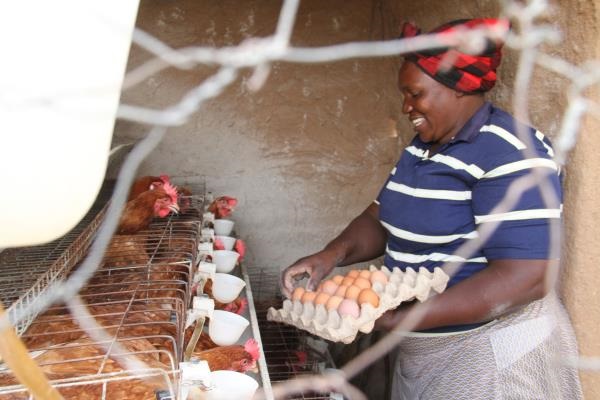
15 October 2014, Rome - Nancy Stetson, US Special Representative for Global Food Security, stressed the importance of partnerships at a US-led Dialogue on Nutrition held at FAO, Oct. 14.
The event was the first in a series of three public discussions leading up to the Second International Conference on Nutrition (ICN2) in November, designed to raise awareness and stimulate debate around key nutrition issues. It brought together representatives from the private sector and civil society, who discussed the importance of effective partnerships to ensure adequate nutrition for the world's population.
To reduce food insecurity and malnutrition, broad ongoing commitment is needed, stressed Stetson, adding that "Nutrition has to be an ongoing focus for future generations and administrations."
"At the core of all our efforts are partnerships," said Stetson. "We cannot make a sustained impact at home or abroad without partnerships."
Louise Kantrow, Permanent Representative to the United Nations of the International Chamber of Commerce highlighted the critical importance of collaboration with the private sector, which is involved in all aspects of the global food system, "from seeds to processing".
"The UN has recognized that the problems confronting the global community now know no boundaries and all actors in society must come to the table and provide inputs...and I'm pleased to see this is also happening here in Rome," said Kantrow, who also emphasized the importance of finding local solutions to local problems and empower women along the way.
Looking ahead at the upcoming ICN2, Josh Lowzman, Deputy Director of Program Advocacy for the Bill and Melinda Gates Foundation underlined the need to bring increased value to people on the ground in the form of concrete commitments and not merely build more structures.
ICN2 will be a unique opportunity to showcase and learn from the success stories in food security that have emerged in the last twenty years and to further build linkages across sectors to collectively tackle malnutrition, he added.
Multi-sectoral approaches are the most important part of the puzzle, stressed Francesco Aureli, Representative to the International Institutions for Save the Children, who also pointed to the importance of social behavioural change as a cornerstone of any successful intervention to combat malnutrition.
Panelists welcomed the Declaration and the Framework for Action agreed upon by countries a few days ago that will be submitted now to the ICN2 for final adoption. The documents acknowledge the effects of malnutrition on people's health and its adverse social and economic impacts on families, communities and States.
"We want ICN2 to be a success and this series of dialogues offer an important opportunity to highlight priorities and to explore a diversity of possible approaches for improving food and nutrition," said US Ambassador to the UN agencies in Rome David Lane.
FAO Deputy Director-General Daniel Gustafson, highlighted the increased understanding that "Good nutrition must begin with agriculture."
"We know a lot more than we knew in 1992 at the first International Conference on Nutrition, what works and doesn't work, and we have a lot more analysis of what needs to be done," he added.
The Dialogue on Nutrition will be followed by two additional pre-ICN2 meetings, on 22 and 30 October, led by the BRICS (Brazil, Russia, India, China and South Africa) and the G77, respectively.
ICN2 will take place November 19-21 at FAO headquarters in Rome.